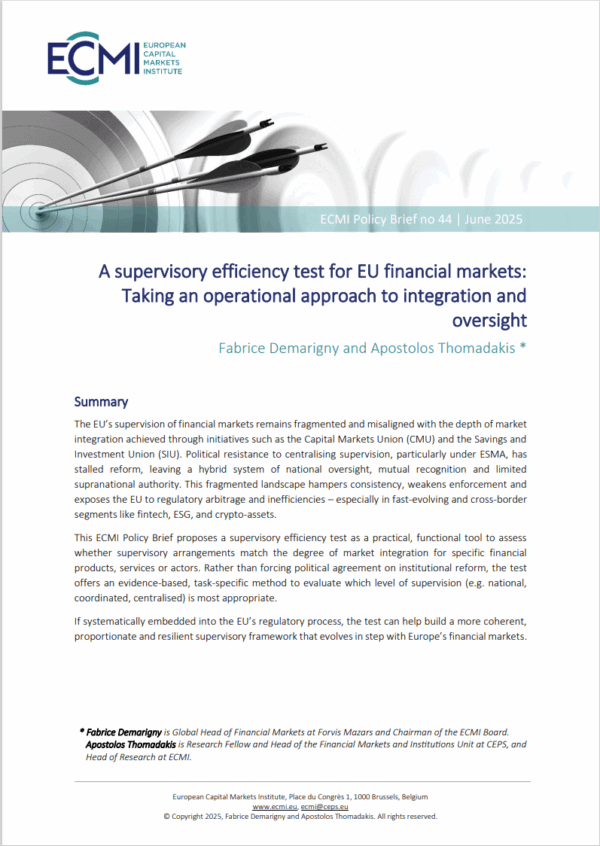For the EU to maintain its competitive edge globally, the von der Leyen II Commission must focus on balancing regulatory simplification with forward-looking strategies in capital market integration, bank competitiveness, digital finance and sustainability. Despite significant growth, Europe’s financial system remains predominantly bank-centric compared with more market-oriented systems. Initiatives like the Capital Markets Union and Banking Union have aimed to diversify and integrate financial markets but progress has been uneven, with inconsistent regulatory enforcement across Member States.
EU capital markets lag behind international counterparts, marked by low shares in global equity and corporate bond markets, limited risk-capital investments and a varied market infrastructure. Although the banking sector is well capitalised, it faces headwinds such as lower profitability and fragmented regulations. The incomplete implementation of the Banking Union compounds these issues, posing risks to long-term financial stability. Additionally, the rise of fintech, artificial intelligence and sustainable financial products presents both opportunities and challenges.
The next Commission needs to move forward and to consolidate. As this contribution explains, enhancing the global competitiveness of EU financial markets requires prioritising regulatory reforms that foster innovation, reduce costs and promote cross-border investments. A comprehensive review of the financial services landscape is essential to address structural inefficiencies, ensure market dynamism and support long-term economic growth.
This CEPS contribution is part of a special series ‘The EU’s path to 2030’, where each of our research units were invited to provide insights on key policy files, offering guidance and recommendations for policymakers throughout the course of the new mandate up until 2030 (and sometimes beyond). Find other contributions to this series here.








